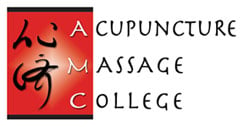HOSPITAL MASSAGE
Massage therapy is currently the most frequently utilized nontraditional therapy offered in hospitals. Therapeutic massage therapy types included as components of patient health care within clinical settings include: Shiatsu, deep tissue, acupressure, Swedish, trigger point, neuromuscular, myofascial release, and reflexology. Massage programs are common on surgical, cardiac, obstetrical, oncology, and general medicine units.
Hospital massage therapy programs offer massage therapy to patients for pain management and comfort. Massage therapy is effective in alleviation of discomfort and assists in patient recovery. Many massage school programs are now offering medical massage therapy training and courses in massage therapy therapeutic techniques to enable massage therapy students to broaden their skills and ability to work with health care teams in acute health care settings.
Hospital-based massage therapy is the application of compassionate touch by massage therapists with a professional massage therapy training background. Massage therapy is utilized as a comfort measure, which is presently the goal of most hospital massage programs. Massage therapy patient applications might include: Myofascial massage therapy to ease a sore back, shiatsu massage therapy to increase energy, acupressure massage therapy pressure point techniques to relieve nausea, or Swedish massage therapy to induce relaxation.
Massage therapy supplements conventional medical treatment to improve clinical outcomes. Massage therapy training offered through massage programs at massage schools includes techniques which are effective in alleviating the symptoms of a number of medical conditions. Massage therapy training offered at several massage schools prepares massage therapists to effectively treat hospital patients in pre- and postnatal care, geriatric care, cancer patients, surgery patients, and those suffering from chronic pain conditions.

 (305) 595-9500
(305) 595-9500






